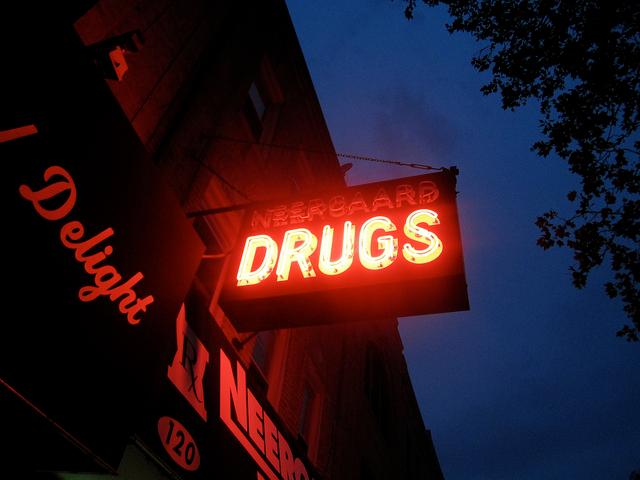Holder, citing prison overcrowding, overrides some mandatory minimum sentences
Low-level drug offenders will no longer face mandatory minimum sentences in federal court. (Photo Courtesy of Flickr user ChrisGoldNY.)
Attorney General Eric Holder on Monday announced substantial changes in the way the federal government prosecutes low-level drug offenders, overriding pre-existing federal laws that impose mandatory minimum sentences for drug-related offenses.
It’s a policy change aimed at both correcting the racial injustices related to drug-related prosecutions and reducing prison crowding.
“Certain low-level, nonviolent drug offenders who have no ties to large-scale organizations, gangs or cartels will no longer be charged with offenses that impose draconian, mandatory minimum sentences,” Holder said. “They now will be charged with offenses for which the accompanying sentences are better suited to their individual conduct, rather than excessive prison terms more appropriate for violent criminals or drug kingpins.”
Mandatory sentences create distrust between law enforcement and the communities they protect, said Neill Franklin, executive director of Law Enforcement Against Prohibition.
“For any law enforcement agency to be effective in solving crime in their communities there has to be a very good relationship between the police and their community because we need their help, we need the citizens help in solving crime,” Franklin said.
The Justice Department will offer drug treatment programs for low-level offenders, instead of jail time, and early release for some current elderly inmates who have served significant portions of their sentences and committed no violent offenses. Additionally, Holder called for more cases to remain in state courts.
“Too many Americans go to too many prisons for far too long, and for no truly good law enforcement reason,” Holder said in a speech during the annual meeting of the American Bar Association in San Francisco.
Holder’s speech referred to the economics of widespread incarceration as unsustainable.
“It imposes a significant economic burden — totaling $80 billion in 2010 alone — and it comes with human and moral costs that are impossible to calculate,” Holder said. “As a nation, we are coldly efficient in our incarceration.”
Endless statistics paint the ugly picture of today’s U.S. legal system. Though the U.S. is home to just five percent of the world population, the 2.3 million incarcerated Americans make up 25 percent of the world’s prison population. More than 60 percent of these prisoners are minorities.
In what he called a “fundamentally new approach,” Holder announced a series of initiatives to refocus shrinking justice resources on violent criminals.
Holder also applauded the 17 states that have reduced their prison populations and reinvested the savings into alternative programs for drug users.
“Clearly, these strategies can work,” Holder said. “They’ve attracted overwhelming, bipartisan support in ‘red states’ as well as ‘blue states’ and it’s past time for others to take notice.”
Holder also called for more resources to be allocated to public defenders and encouraged schools to handle disciplinary actions in-school more often, rather than involving law enforcement.
